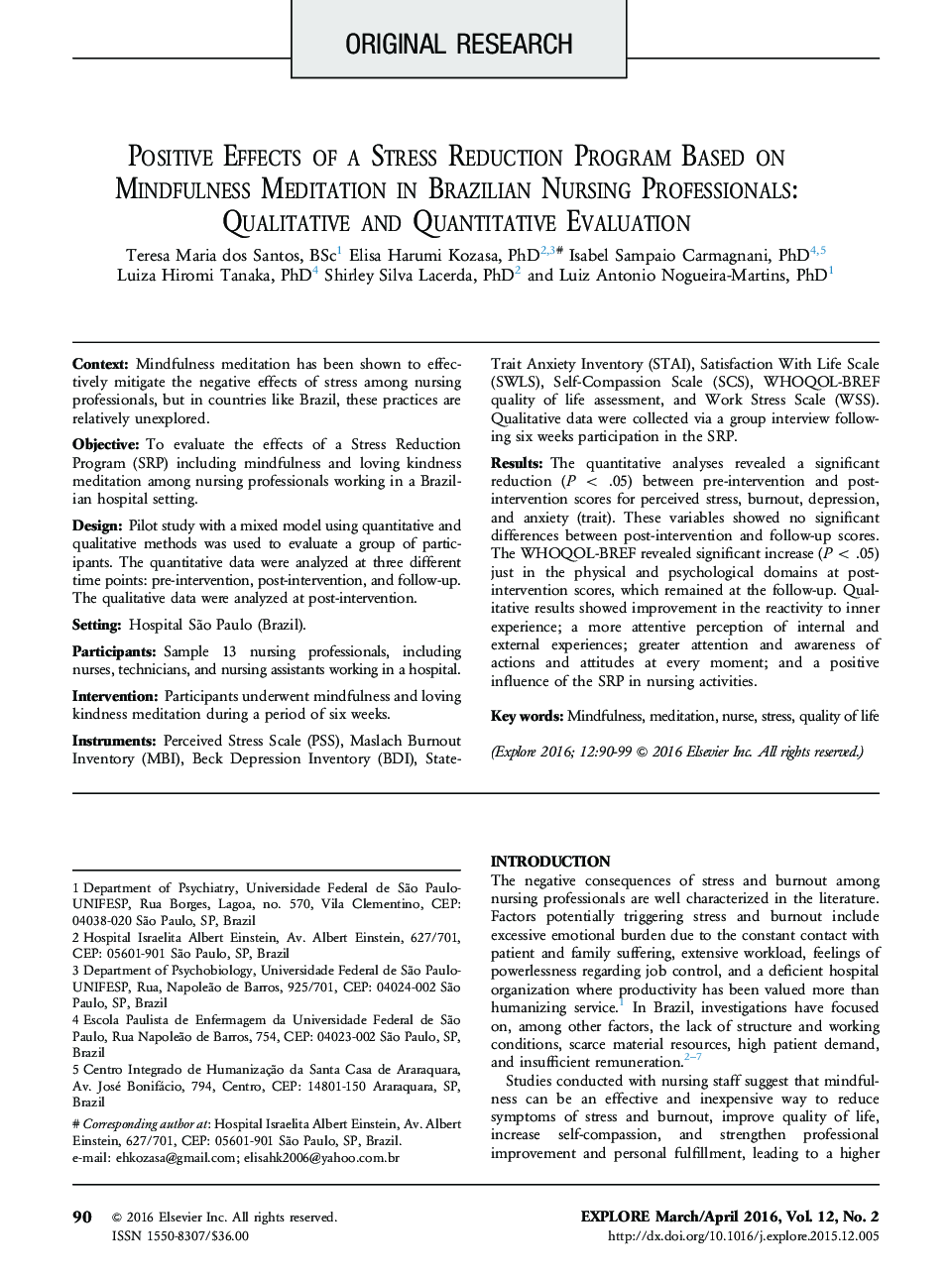| Article ID | Journal | Published Year | Pages | File Type |
|---|---|---|---|---|
| 2691623 | EXPLORE: The Journal of Science and Healing | 2016 | 10 Pages |
ContextMindfulness meditation has been shown to effectively mitigate the negative effects of stress among nursing professionals, but in countries like Brazil, these practices are relatively unexplored.ObjectiveTo evaluate the effects of a Stress Reduction Program (SRP) including mindfulness and loving kindness meditation among nursing professionals working in a Brazilian hospital setting.DesignPilot study with a mixed model using quantitative and qualitative methods was used to evaluate a group of participants. The quantitative data were analyzed at three different time points: pre-intervention, post-intervention, and follow-up. The qualitative data were analyzed at post-intervention.SettingHospital São Paulo (Brazil).ParticipantsSample 13 nursing professionals, including nurses, technicians, and nursing assistants working in a hospital.InterventionParticipants underwent mindfulness and loving kindness meditation during a period of six weeks.InstrumentsPerceived Stress Scale (PSS), Maslach Burnout Inventory (MBI), Beck Depression Inventory (BDI), State-Trait Anxiety Inventory (STAI), Satisfaction With Life Scale (SWLS), Self-Compassion Scale (SCS), WHOQOL-BREF quality of life assessment, and Work Stress Scale (WSS). Qualitative data were collected via a group interview following six weeks participation in the SRP.ResultsThe quantitative analyses revealed a significant reduction (P < .05) between pre-intervention and post-intervention scores for perceived stress, burnout, depression, and anxiety (trait). These variables showed no significant differences between post-intervention and follow-up scores. The WHOQOL-BREF revealed significant increase (P < .05) just in the physical and psychological domains at post-intervention scores, which remained at the follow-up. Qualitative results showed improvement in the reactivity to inner experience; a more attentive perception of internal and external experiences; greater attention and awareness of actions and attitudes at every moment; and a positive influence of the SRP in nursing activities.
